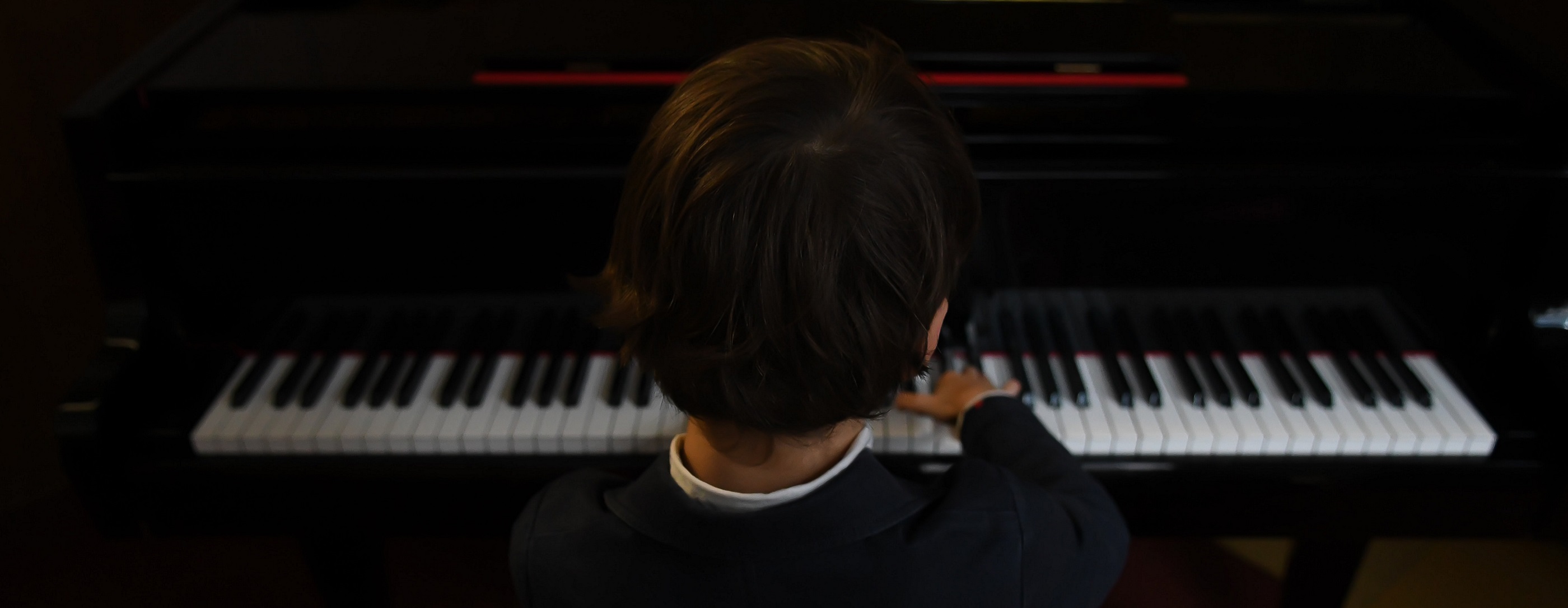.jpg)
How Bedazzle Arts are supporting SEND learners to succeed
BY: Guest Writer
07 September 2022
This week we hear from Rhiannon Matchette and Charlotte Downes at Bedazzle Arts, who share with us how they use the flexibility of Trinity's drama offer to support young people with a range of learning disabilities to succeed.
Bedazzle Arts began in 2006, with the aim of bringing high quality performing arts education to young people in Cambridgeshire and Essex. Since then, Bedazzle has gone from strength to strength and now includes a producing arm, BiT (Bedazzle inclusive Theatre), which creates original work and reimagined pieces for stage and film; and a Performing Arts Foundation course, providing accessible professional training for diverse performers.
The Performing Arts Foundation Programme offers inclusive professional training for young people with special educational needs and/or disabilities. The course prepares students for work in the performing arts industry by developing their performance skills; offering professional workshops and work experience days; and supporting participants to work towards qualifications.
For our students, exams offer something to work towards and to aspire to. They are useful markers of progression, as well as a fantastic achievement and celebration of that progression. A professionally recognised qualification, at a standardised level, acts as proof that disability is not a barrier to success and that Bedazzle students are working to the high standards expected by the industry.
The Foundation Programme course content is delivered in manageable chunks, and repeated frequently to help develop students’ understanding, allowing students the time they need to flourish. This may mean taking two terms, or even a full academic year, to work on exam pieces. Although this may seem like a long time to devote to a single project, taking an exam is an important milestone and it is worth taking this time and being patient. There are many important skills developed along the way: the discipline of practise, self-reflection, learning lines or lyrics, performance skills, to name just a few. Having an exam to work towards lends a sense of direction to the process of honing these skills.
Many students suffer with anxiety, which really compounds the usual exam nerves, but the supportive atmosphere created on the Foundation Programme means this doesn’t become a barrier to taking part in exams. For some students, memory is a particular challenge, and others communicate more effectively with their body language, creative expression, or choice-making than through discussion or vocabulary. This means they can excel in the performance element of the exam, but the Reflection task can be challenging.
Where necessary, Bedazzle requests reasonable adjustments for students, in line with their EHCPs, to make the exam experience more accessible. This could include using Makaton or visual prompts in the form of symbols to help performers answer the examiner’s questions in detail and to remind them of the technical vocabulary used in lessons and rehearsals. We use printed Widgit symbols with key words as supporting notes that the students are allowed to use in the Reflection section of the exam, or staff accompanying entrants for the exam performance may use Makaton signing to encourage more detail or prompt a particular idea; often just a few key symbols can help prompt students to share their thoughts and reflections clearly. These techniques enable students to rise to the occasion and showcase what they are capable of during their exam.
When preparing for exams, producing the course material in an accessible format for each student enables everyone to reach their potential. This includes clear and detailed plans regarding timelines and schedules, so that students always feel supported in what is coming next. We use visual timetables and communication aids as well as creative approaches to ensure material is regularly rehearsed but doesn’t become uninteresting for the students (whilst some students find great comfort in repetition, others may find this aspect challenging).
A key element in the success of our students is the high staff-to-student ratios. Staff know their students; their needs, what they are capable of, and how best to support them. Students can be prepared in very small groups or on a one-to-one basis, with any support specifically tailored. Some students do best when they are given choices, rather than asked open questions; others benefit from signing or using symbols for questions. Students may practise effectively independently, or they might need directions for which elements to practise. Knowing the students well, knowing their pieces and recognising the signs they may be getting nervous or frustrated means staff are well placed to encourage and support students.
For some students, there are aspects of taking a face-to-face exam that could be challenging, such as travelling to a new venue, meeting new people, or not knowing too far in advance exactly when their exam will take place. Digital drama exams remove a lot of these challenges, as well as minimising sensory overload, and we have found them to be a great way to support our students to achieve their best. Digital exams put the exam environment into the young person’s control; they are in a familiar environment, with people they know and feel comfortable with, and they can be well prepared with visual timetables and minimal changes to their routines. It also takes away some of the pressure, as students can re-record if they aren’t happy with the performance they produce. Although, the more relaxed they feel, the less likely they are to need to do this.
All of our Foundation Programme cohort for 2021-22 have achieved a Trinity exam over the course of the academic year. We have supported students to take digital Performance Arts Solo exams at Grade 1, and also had great success when students took their 4-star reviewed Edinburgh Fringe show to Cambridge Junction, for which they gained a Grade 5 ‘In Production’ qualification at Distinction level. Many of this cohort are now represented by our agency ‘Inclusive Talent’ and have gone on to work professionally.
Our tips for teachers preparing SEND candidates for a drama exam:
- Ensuring your student is involved in the decision-making progress has been key for us, as many of our students are hugely passionate about the pieces they are performing. The stronger the connection is to the material, the easier it is to show off their skillset to a high level, celebrating their success. It also makes the reflective tasks more engaging and the focus necessary more achievable when it’s a subject area of interest.
- Using inclusive approaches such as visual timetables, Makaton or Widgit symbols and communication aids can enable students to excel in the Reflection task, however they communicate. We work a lot of with choice-making to begin with, and then build up more detail, so that the reflective process is a ladder, and students are not expected to jump straight in with a fluid and detailed reflective response.
- We work in small groups to ensure bespoke support, as every learner is so different. Peer feedback is integral to our sessions, and our students love practising in front of each other and sharing feedback. Giving direction but also celebrating ownership over the pieces is another area that has helped our students flourish!
Related posts
BY: Natalie Christopher




Comments & Replies